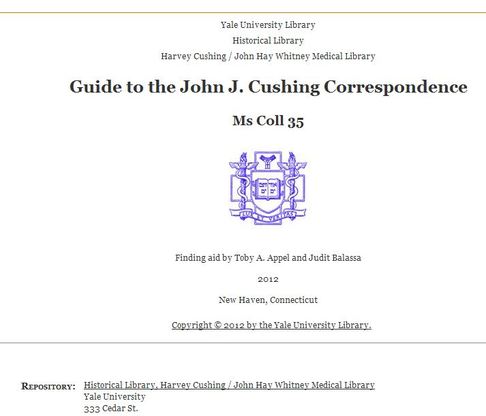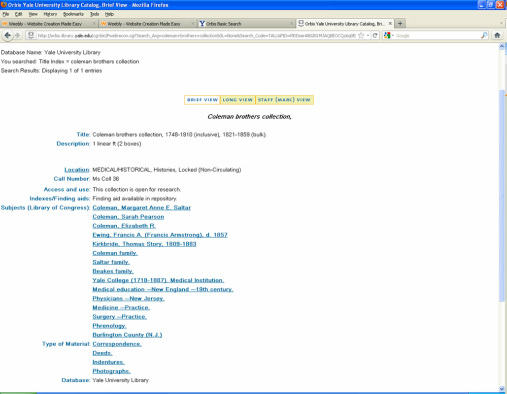
Although we first started with access terms (name, subject, place and genre headings) we eventually came back to them at the last run-through, after I had worked so much with the physical arrangement and description of contents of the collection, that it was much faster to assign a handful more.
I used LCSH and AAT (The Getty) for creating access points to the archive. All the access points in the catalog database also had to be entered into the finding aid, with the appropriate XML tags for name heading, subject heading, genre term, etc. This is how the final product displays in Orbis:
I started by looking through Orbis records w/ Melissa G. She pointed out that more consistency was needed across 590 notes, and suggested that I create a text document for wording of notes that are likely to be repeated. Other chores would be to clean up punctuation in 260 fields, add $c in the 300. More notes to add about book traders catalogs.My text document turned into a field-by-field checklist that I used to comb through all the records. Here it is:
100 -- check auth file
260 -- fix punctuation
300 -- provide $c
590 -- standard wording:
590 ‡a Provenance - Copy [n] from the library of John Rodman Paul.
590 ‡a Publisher's advertising and catalog [2], 8p. at end of text.
650 -- Cut fields with MESH (indicator 2) if it is identical to LCSH
650 -- If no subject headings, check OCLC; cut and paste appropriate SHs
ITEM RECORDS, ITEMS IN HAND
type noncirc
C. 1, C. 2 etc. on call no/barcode card
Time does fly when you're having fun with figuring out which fevers Elisha Bartlett described in his famous treatise, so as to check which OCLC record has the most accurate set of narrower subject terms; or better yet trying to do the same for Spinale Kinderlahmung in German: was it primarily on poliomyelitis or is paralysis the sufficiently general term? No one told me I would end up enthusiastically poring through 19th century german medical texts, but that's what I found myself doing, and enjoying it thoroughly!


 RSS Feed
RSS Feed